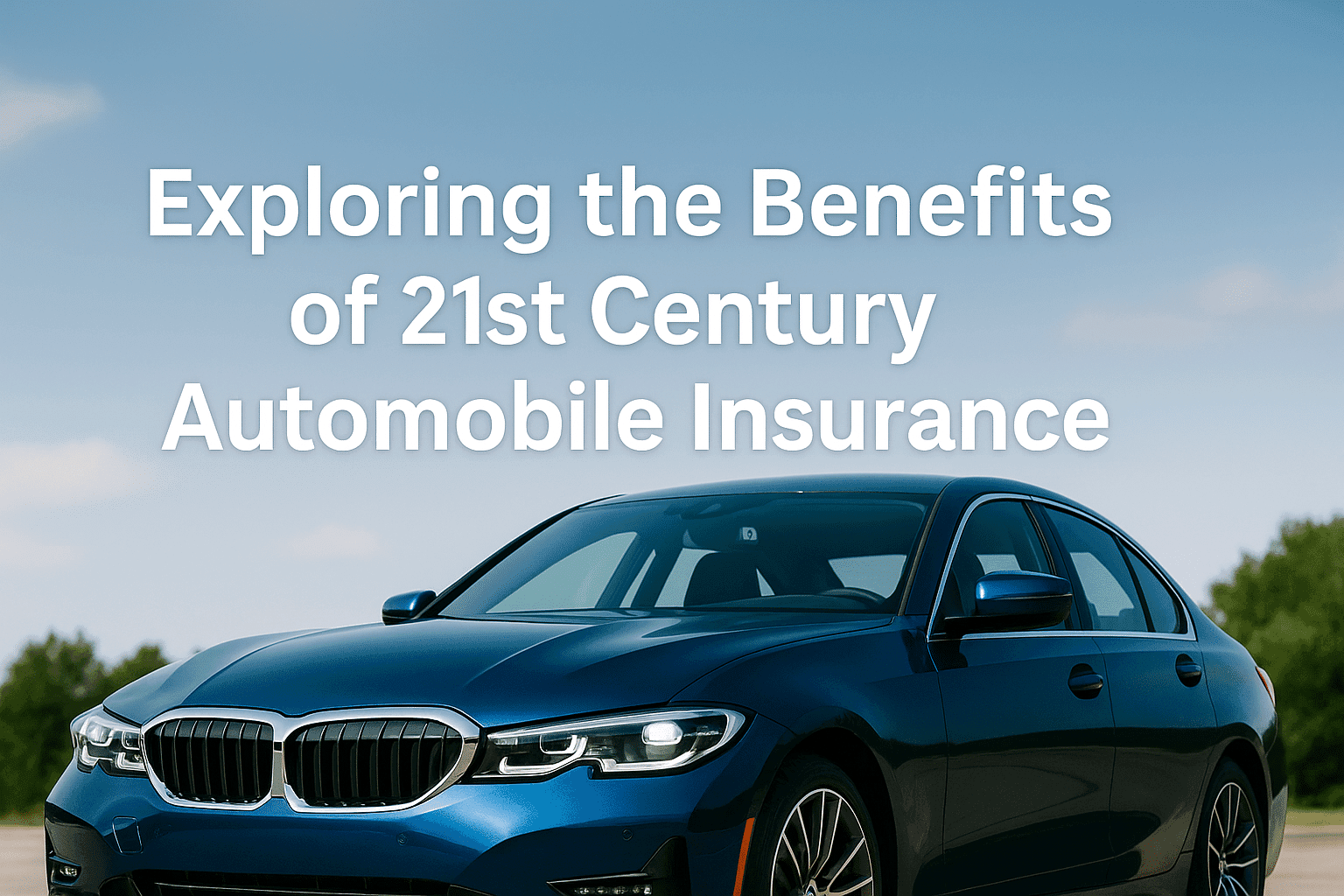The auto insurance industry has undergone significant change as a result of shifting customer needs, driving habits, and technological advancements. The numerous features of auto insurance have evolved, become more individualized, and are now more easily accessible, all of which benefit modern drivers. Whether you’re a novice or an experienced driver, understanding the advantages of 21st-century auto insurance will help you select coverage and enhance your driving experience.
The use of technology in modern auto insurance is noteworthy. Insurance companies use state-of-the-art technology to offer telematics-based insurance, which uses smartphone apps or car sensors to record your driving habits. This system monitors time, braking, speed, and distance. Insurance companies can use this information to tailor rates based on a driver’s driving habits. Responsible drivers who drive safely pay less for insurance, which rewards their prudence and promotes safer driving.
To expedite claims, contemporary auto insurers employ telematics, artificial intelligence, and big data analytics. AI-driven systems speed up policyholder payout times by rapidly assessing damage, managing claims, and estimating repair costs. Efficiency increases customer satisfaction and frees up administrative resources for better use by insurance companies. AI is used in fraud detection to spot questionable claim patterns and thwart fraud. As a result, law-abiding citizens pay less for insurance.
Usage-based insurance (UBI) models are advantageous for contemporary auto insurance. Drivers who don’t drive often have options thanks to these models. For people who use public transportation, telecommute, or own a second car that is rarely used, pay-per-mile insurance is perfect. Because usage-based insurance adapts to their driving habits, low-mileage drivers can pay less for it.
The secret to contemporary auto insurance is customization. Policyholders can customize their insurance to meet their needs with the supplemental coverages and add-ons offered by today’s insurance companies. Liability and accident coverage are strengthened by roadside assistance, rental car reimbursement, gap insurance, and coverage for specific parts and equipment. With this degree of personalization, drivers can drive with assurance, knowing that their tastes, vehicle type, and way of life are fully covered.
Purchasing and maintaining auto insurance is now simpler thanks to the insurance industry’s digital revolution. For policyholders to purchase and renew policies, pay premiums, file claims, and access important documents, numerous insurance companies provide web portals and mobile apps. Customers can now easily and transparently manage their insurance needs thanks to digital technology. The user experience is enhanced by chatbots and internet services that offer round-the-clock customer support.
Auto insurers are rewarding eco-friendly driving in response to emerging environmental concerns. Because hybrid and electric vehicles have less of an impact on the environment, insurance companies save money for their owners. Insurance rates can also be decreased by carpooling, taking public transit, and cutting back on annual miles. In order to encourage environmental sustainability, insurance companies offer incentives to environmentally conscious drivers.
Shared mobility has affected modern auto insurance. Insurance companies have created policies to meet these demands as car-sharing services like Uber and Lyft have grown in popularity. Specifically, ride-share insurance fills in the gaps between a driver’s personal auto insurance and the coverage offered by ride-sharing companies, giving business travelers complete security. The insurance sector’s ability to adjust to emerging mobility trends demonstrates its dedication to satisfying drivers’ technological demands.
Discounts and incentives are provided by contemporary auto insurance providers. To encourage moral behavior and enduring relationships, insurance companies offer loyalty bonuses, multi-policy discounts, and discounts for responsible drivers. Certain companies offer accident forgiveness programs that keep premiums affordable for careful drivers by avoiding increases in premiums following their first collision. These discounts and incentives lower insurance costs while enhancing road safety and reducing accidents.
Safety campaigns and education are part of contemporary auto insurance coverage. To assist drivers in developing their road safety skills, numerous insurance companies fund driver education initiatives. These consist of lectures on safe driving, defensive driving instruction, and online courses. Insurance companies’ proactive driver education and safety campaigns to lower road risk and accidents benefit policyholders and the general public.
Compared to traditional coverage, modern auto insurance offers numerous benefits. Communication between drivers and insurance companies has changed as a result of technology integration, customized pricing plans, online ease of use, and customization options. In addition to improving customer satisfaction, these modifications encourage safer roads, environmentally friendly driving, and adaptability to changing mobility trends.
Drivers can anticipate even more innovative options that satisfy their needs and provide them with total safety and peace of mind while driving as the auto insurance market continues to evolve. Modern auto insurance offers options that fit your lifestyle, whether you own an environmentally conscious vehicle, commute short distances, or drive a tech-savvy car.









